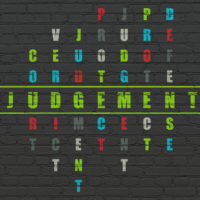Getting Your Name Off the Orlando Sex-Offender List

When an individual hears the term “sex offender” they automatically associate it with rapists and child molesters. However, there are many “sex offenders” out there who are guilty of nothing more than now-legal sex acts such as sodomy or oral sex, or even of having sexual relations with a partner that was no younger than 16 and no more than seven years their junior. Unfortunately, if you committed a now-legal sex act before it was made legal, your name will appear in a public database of sexual offenders.
Wherever you move to, you must register with your local police department so that your neighbors may know that a sex-offender has moved to the area. Whenever you apply for a job and the employer runs a background check, your status as a sex-offender will pop-up. And whenever anyone anywhere does a quick search of your name, they will learn of your past transgressions. Having your name in the sex offender database can have devastating consequences on your future and your relationships. If you did not commit a sex-crime by today’s standards, this can be highly unfair.
Types of Individuals Who Appear Unfairly in Sex Offender Databases
While sex offender registries were created to protect individuals from pedophiles and rapists, few foresaw the harmful impact that they would have on perfectly nice, law-abiding citizens. For instance, prior to 1971, gay men in Florida were arrested and punished for committing “unnatural and lascivious acts”; their names went on the sex offender list as a result.
Prior to 2007’s Romeo and Juliet law, any young individual who had sexual relations with their teenaged sweetheart was convicted of statutory rape—despite each party’s age. Today, however, Florida’s “close in age exemption” makes it legal for minors aged 16 or 17 to engage in sexual intercourse with a partner no older than age 23. If an individual was charged prior to 2007, however, their name will appear in Florida’s sex offender database.
In some states (Florida is not one of them), streaking is no longer considered indecent exposure so long as it is not done in front of children or within so many feet of a school. Prior to streaking becoming legal in those states, individuals caught in moments of indiscretion were committed of a sex crime and placed on the national sex offender registry.
Getting Off the Sexual Offender Database
If you were convicted of a now-legal sex offense in Florida, and if your name unfairly appears on the national database of sex offenders, you do have options. In Florida, you may be pardoned under the following laws:
- Florida’s Romeo and Juliet Law
- Post-Conviction Relief
- After 25 Years
- Full Pardon
- Out-of-State Designation of Sex Offender Removed
However, receiving a pardon is not easily done in Florida. The state does not take sex crimes lightly, and will make it difficult for any previously convicted individual to clear his or her name. At The Baez Law Firm, our Orlando sex crimes lawyers can assist you in clearing your name through aggressive legal representation and by utilizing our extensive knowledge of Florida sex crimes law. If you want to get your name off the sex offender database, give our criminal defense lawyers a call at 800-588-BAEZ today.
Resources:
leg.state.fl.us/statutes/index.cfm?App_mode=Display_Statute&URL=0800-0899/0800/Sections/0800.02.html
ageofconsent.net/states/florida
